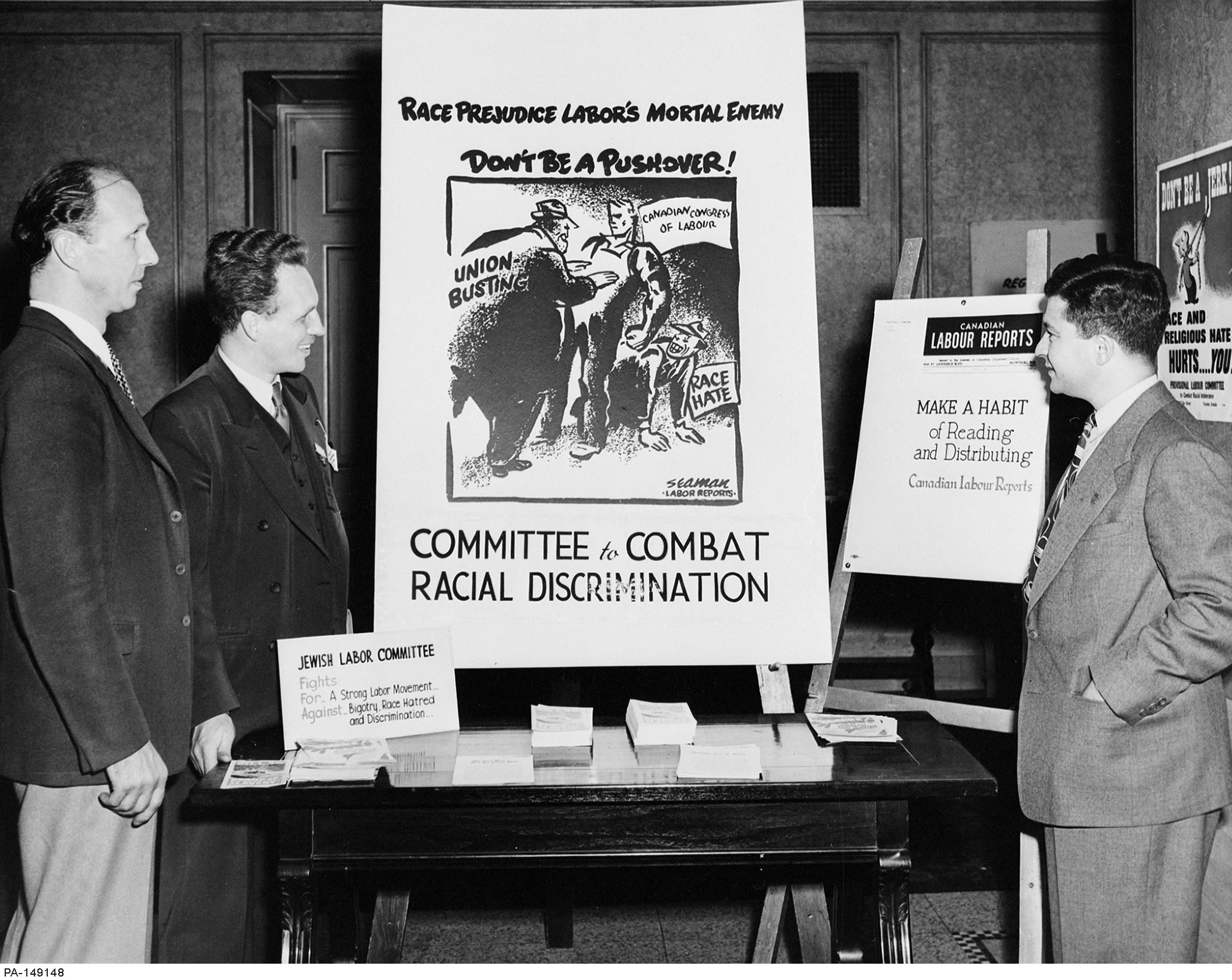League for Democratic Rights
The League for Democratic Rights (LDR), a merger of the Civil Rights Union, the newly created Montreal Civil Liberties Union, and a group in Timmins, Ontario, was formed in 1950. Like the Association for Civil Liberties, the LDR was an attempt to establish a national rights association but one that included communists. It claimed to have affiliates across the country, and it received funds from each affiliate and various unions.
In Repression and Resistance, Ross Lambertson notes,
“From the beginning, the LDR was shunned by the non-Communist civil liberties organizations, but seventeen months later its letterhead claimed twenty-four affiliated branches in Sydney Nova Scotia to Vancouver. In 1953 it boasted ‘branches, committees, or affiliates in 31 centres across the country.’ This latter figure may have been somewhat inflated, but an examination of the financial reports of the LDR indicates that the organization expected, and received, regular donations of money from most of the above-mentioned groups, with Montréal and Toronto giving the most, followed by the Vancouver branch. In addition, it received regular infusions of money from a number of radical left-wing groups and unions, such as UJPO, the UE Workers, Mine-Mill, and the United Mine Workers of America. In short, the LDR could legitimately claim to be Canada’s only national civil liberties organization, although one severely truncated by the absence of the ‘right-wing’ organizations such as the ACL or the VCCLU … For the most part the LDR concentrated upon three issues: eliminating the Padlock law, opposing certain amendments to the Criminal Code, and the need for a bill of rights.”
Further Reading
Lambertson, Ross. Repression and Resistance: Canadian Human Rights Activists, 1930-1960. Toronto: University of Toronto Press, 2005.
Archives
There is no single archival collection for the LDR. However, material is available in the J. King Gordon Papers, the Arthur Roebuck Papers, and the Frank Scott Papers at Library and Archives Canada.
 Site Resources
Site Resources-
- Any use of material or referencing content from HistoryOfRights.ca should be acknowledged by the User and cited as follows:
–
- Clément, Dominique. “page title or document title.” Canada’s Human Rights History. www.HistoryOfRights.ca (date accessed).


 Encyclopaedia
Encyclopaedia 
 © 2024 COPYRIGHT CLÉMENT CONSULTING. ALL RIGHTS RESERVED.
DEPARTMENT OF SOCIOLOGY, UNIVERSITY OF ALBERTA
© 2024 COPYRIGHT CLÉMENT CONSULTING. ALL RIGHTS RESERVED.
DEPARTMENT OF SOCIOLOGY, UNIVERSITY OF ALBERTA